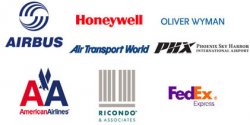- Dec 21, 2002
- 5,998
- 347
John Conley never met a white flag he didn't enjoy waving. This is pathetic!!!
*********************
Fuel costs could cut union demands on American Airlines
By TREBOR BANSTETTER
Star-Telegram Staff Writer
PHOENIX -- Skyrocketing oil prices may cause a "seismic shift" in the airline industry that could affect ongoing labor talks, a top union official said Thursday.
"Look, we're at $100 crude," said John Conley, air-transport division director at the Transport Workers Union, which represents ground workers at American Airlines as well as some employees at American Eagle, Southwest Airlines and other carriers. "I don't know that it bodes well for us being as successful [in negotiating new contracts] as we had once hoped."
Conley appeared on a panel at the International Aviation Symposium in Phoenix. Several industry insiders said that the price of fuel, which is the No. 1 cost for airlines, could devastate the industry.
"This could very well be a seismic-shift year," Conley said. He said the environment "could be an opportunity to consider not being as intractable as folks have been in the past."
Analyst Gary Chase of Lehman Bros. pointed out that the run-up in fuel is having a greater impact on airline costs than a typical recession.
"With fuel, it's like this is three recessions at once," he said. "And then, we also have a recession."
The union is negotiating new contracts for mechanics and other ground workers at American. The airline is also holding contract talks with pilots and will soon begin negotiating with flight attendants.
All three labor groups have said they want full restoration of 2003 wages and benefits, which were cut significantly to keep American out of bankruptcy.
The American talks are being closely watched throughout the industry.
Chase said that even cutting labor costs won't be enough to offset the spike in fuel prices, nor will fare increases. He argued that only a reduction in airline capacity can bring the industry back to profitability.
"It's not like we have to shut down half the industry," he said. "But capacity is the only way the industry can do it."
TREBOR BANSTETTER, 817-390-7064
[email protected]
*********************
Fuel costs could cut union demands on American Airlines
By TREBOR BANSTETTER
Star-Telegram Staff Writer
PHOENIX -- Skyrocketing oil prices may cause a "seismic shift" in the airline industry that could affect ongoing labor talks, a top union official said Thursday.
"Look, we're at $100 crude," said John Conley, air-transport division director at the Transport Workers Union, which represents ground workers at American Airlines as well as some employees at American Eagle, Southwest Airlines and other carriers. "I don't know that it bodes well for us being as successful [in negotiating new contracts] as we had once hoped."
Conley appeared on a panel at the International Aviation Symposium in Phoenix. Several industry insiders said that the price of fuel, which is the No. 1 cost for airlines, could devastate the industry.
"This could very well be a seismic-shift year," Conley said. He said the environment "could be an opportunity to consider not being as intractable as folks have been in the past."
Analyst Gary Chase of Lehman Bros. pointed out that the run-up in fuel is having a greater impact on airline costs than a typical recession.
"With fuel, it's like this is three recessions at once," he said. "And then, we also have a recession."
The union is negotiating new contracts for mechanics and other ground workers at American. The airline is also holding contract talks with pilots and will soon begin negotiating with flight attendants.
All three labor groups have said they want full restoration of 2003 wages and benefits, which were cut significantly to keep American out of bankruptcy.
The American talks are being closely watched throughout the industry.
Chase said that even cutting labor costs won't be enough to offset the spike in fuel prices, nor will fare increases. He argued that only a reduction in airline capacity can bring the industry back to profitability.
"It's not like we have to shut down half the industry," he said. "But capacity is the only way the industry can do it."
TREBOR BANSTETTER, 817-390-7064
[email protected]

